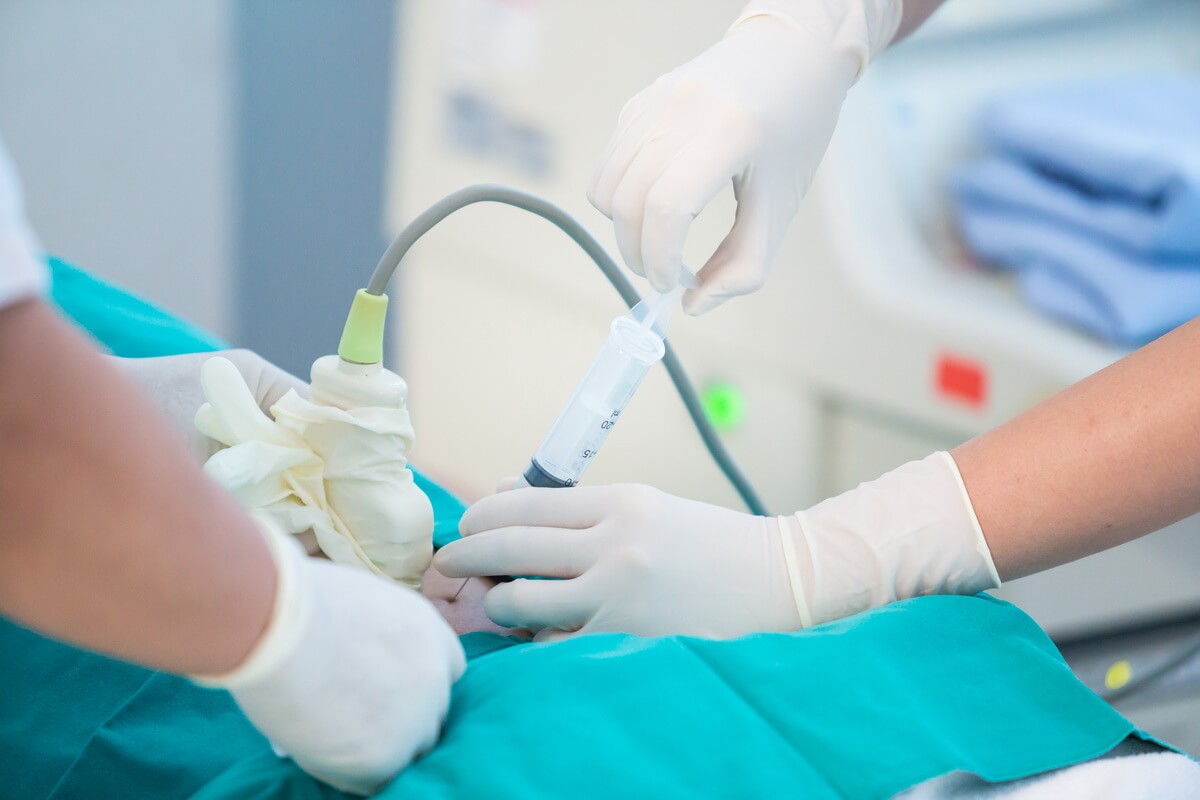Amniocentesis is a method that is performed between the 15th and 18th week of pregnancy under the control of ultrasound, with a needle through the mother’s abdomen into the uterus, and on that occasion, amniotic fluid is aspirated for further analysis. Before the aspiration, a detailed ultrasound examination is performed, during which the position of the baby is determined, as well as the placenta in order to avoid inaccuracy of the procedure, but also injury to the fetus. 15-20 ml of fetal water is needed for analysis and the cultivation of fetal cells and karyotyping (examination of fetal chromosomes) thanks to new FISX techniques allow to obtain results in just a few days.
Amniocentesis allows not only to determine the number and arrangement of chromosomes, as well as to determine the fetal sex, but is also used to determine the maturity of the child or the amount of bilirubin in amniotic fluid in Rh mismatch.
The intervention is performed under local anesthesia.
The risks with this intervention are miscarriage, premature delivery, bleeding and infections, and they occur in 1-2% of aspirations.





